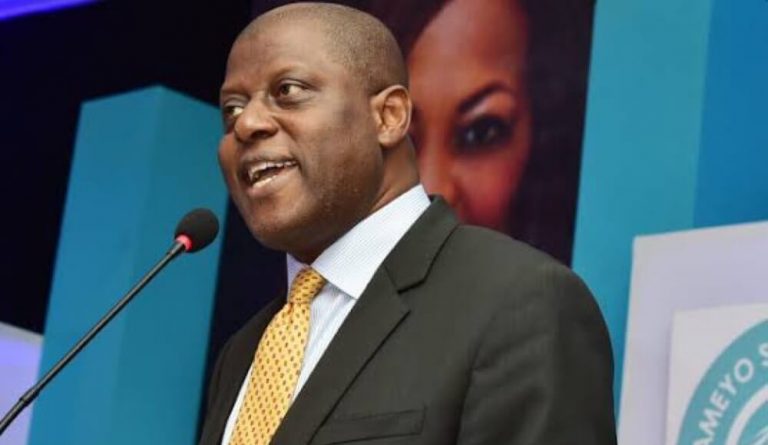
In a concerning revelation, the Central Bank of Nigeria (CBN) has sounded the alarm over the country’s deteriorating economic situation underlined by soaring inflation and dwindling economic activities.
Bala Bello, the CBN’s deputy governor of Corporate Services, raised these concerns in a recent statement published on the bank’s website, shedding light on a myriad of issues plaguing the nation’s financial stability.
He highlighted a stark decline in the country’s economic activities, citing a significant drop in the Composite Purchasing Managers’ Index.
Tekedia Mini-MBA edition 16 (Feb 10 – May 3, 2025) opens registrations; register today for early bird discounts.
Tekedia AI in Business Masterclass opens registrations here.
Join Tekedia Capital Syndicate and invest in Africa’s finest startups here.
“It is concerning to note that the Composite Purchasing Managers’ Index declined sharply to 39.2 index points in February 2024 from 48.5 index points in the previous month,” expressed Bello, signaling a worrisome trend.
According to Bello, the economic downturn, which he attributed to a confluence of factors including exchange rate pressures, inflation, and security challenges, has persisted for eight consecutive months.
“Economic activity has been contracting for eight consecutive months, mainly due to exchange rate pressures, rising input prices, security challenges, and other idiosyncratic headwinds,” he remarked, emphasizing the need for strategic policy interventions to reignite economic growth.
‘‘This calls for well-nuanced policy decisions targeted at price stability to forestall stifling economic activities and derailing output performance,’’ he said.
Of particular concern is the relentless surge in inflation, despite concerted efforts to mitigate its effects. Bello lamented, “Both food and core inflation rose in February 2024, underpinning an acceleration in headline inflation to 31.70 per cent in February 2024 from 29.90 per cent in the previous month,” attributing the rise to escalating production costs, security threats, and exchange rate volatility.
Highlighting the gravity of the situation, Bello revealed that inflation surged even further to 33.22 percent in March, necessitating urgent and coordinated action to quell its upward trajectory.
“Inflation is currently unacceptably high and requires decisive and coordinated efforts to curb it, given its adverse impact on citizens’ purchasing power, investment decisions, and broad output performance,” he urged.
While acknowledging the Federal Government’s initiatives to address food insecurity through various interventions, including the release of grains from strategic reserves and support for agricultural activities, Bello emphasized the need for sustained efforts to mitigate the adverse effects of inflation on the populace.
The Monetary Policy Committee (MPC) had previously responded to the economic challenges by raising the country’s interest rate to 24.75 percent in March, indicating a proactive stance to stabilize the economy amidst mounting pressures.
However, the persistent rise in inflation and the free fall of the naira in the forex market show that the government efforts are not yielding the needed results. Economic experts have attributed the economic downturn to the policies and other actions of the government.
While President Bola Tinubu has been traveling the world in search of foreign direct investments, existing businesses in the country are liquidating. The poor response of investors to the president’s pleas for investments in Nigeria has been attributed to a lot of factors, including the nation’s disregard for the rule of law and the insincerity of the government.
Recently, there has been an uptick in misleading statements from the federal government, heralding foreign direct investments secured by Tinubu. For instance, a few days ago, the presidency released a statement announcing that shipping giant Maersk will invest $600m in Nigeria. The news was refuted by Maersk, adding to other similar false announcements by the government in the past.
Economic experts say such developments are significantly affecting Nigeria’s international reputation, belying the president’s preachment that the country is an investment destination.



